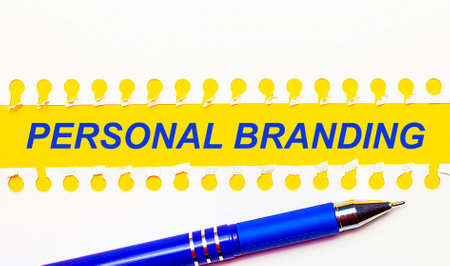Understanding Employer Expectations in the UK
When considering how to align your personal brand with employer expectations in the UK, it is essential to first understand what British employers typically look for in candidates. Beyond technical skills and qualifications, UK employers place strong emphasis on soft skills such as communication, adaptability, and teamwork. Demonstrating reliability, punctuality, and a proactive approach is also highly valued within the British workplace culture. Employers are attentive to how well you embody values like integrity, respect, and responsibility—qualities that are woven into the fabric of UK professional life.
Cultural fit plays a significant role during recruitment processes across the United Kingdom. Many organisations seek individuals who not only meet the job requirements but also resonate with their corporate values and ethos. This means showing professionalism both online and offline, upholding high ethical standards, and respecting diversity and inclusion initiatives. Being mindful of established workplace etiquette—such as using polite language, maintaining appropriate dress codes, and demonstrating a willingness to collaborate—can further distinguish you in a competitive job market.
In summary, understanding what UK employers expect involves recognising the importance of both tangible skills and intangible qualities that support a positive working environment. By appreciating these norms and expectations, you can better position your personal brand to meet and exceed what British employers value most in their workforce.
2. Building a Genuine Personal Brand for the UK Market
Establishing a personal brand that resonates within the UK job market requires more than just self-promotion—it demands an authentic reflection of your unique strengths, while also aligning with the attributes British employers value. In the UK, employers increasingly look for candidates who not only have the right skills but also demonstrate integrity, adaptability, and cultural awareness. Therefore, crafting your personal brand should be a thoughtful process that combines honest self-assessment with a clear understanding of employer expectations.
Identifying Core Strengths and Employer Preferences
Start by mapping out your key skills, experiences, and personal values. Equally important is researching what UK employers prioritise in their workforce—attributes like teamwork, communication skills, problem-solving abilities, and a strong work ethic are frequently mentioned. The table below illustrates how you can align your core qualities with what is sought after in the UK job market:
| Your Core Strength | UK Employer Expectation | Alignment Strategy |
|---|---|---|
| Effective Communicator | Clear & Professional Communication | Showcase experience in multi-stakeholder projects |
| Adaptable & Flexible | Willingness to Embrace Change | Cite examples where you adapted to new systems or regulations |
| Problem Solver | Proactive Approach to Challenges | Describe situations where you implemented innovative solutions |
| Collaborative Spirit | Teamwork & Inclusivity | Highlight participation in cross-functional teams or diverse environments |
| Integrity & Reliability | Trustworthiness & Ethics | Mention roles requiring confidential handling of information or ethical decisions |
The Role of Authenticity and Self-Awareness
A successful personal brand is rooted in authenticity. This means being truthful about your achievements and recognising areas for growth. UK employers appreciate candidates who exhibit self-awareness—those who understand their own limitations and are open to development. Instead of overstating qualifications or mimicking generic traits, focus on sharing real-life examples that demonstrate both your character and competence.
Cultural Sensitivity in Personal Branding
The UK workplace values inclusivity and respect for diversity. When shaping your personal brand, consider how your background and perspectives contribute positively to a multicultural environment. Acknowledge your unique journey while showing an openness to learning from others—a quality highly regarded across British industries.
![]()
3. Navigating Professional Etiquette and Communication
In the UK, aligning your personal brand with employer expectations goes beyond skills and qualifications—it demands a keen awareness of professional etiquette and communication standards. British workplaces value clarity, politeness, and respectfulness in all forms of interaction, whether written or spoken. Understanding and adopting the appropriate language, tone, and etiquette is crucial when crafting CVs, cover letters, or managing your online presence.
The Subtlety of British Communication
British professionals often favour indirect communication and a measured tone. Overly assertive or self-promotional language may be perceived as boastful rather than confident. When writing a CV or cover letter, opt for concise descriptions that highlight achievements without exaggeration. Phrases such as “I was fortunate to have the opportunity…” or “I contributed to…” demonstrate humility while showcasing competence.
Politeness as a Core Value
Politeness is deeply ingrained in British business culture. Courteous greetings, expressions of gratitude, and careful attention to salutations are expected in emails and formal documents. Addressing individuals by their correct titles (such as Mr, Ms, Dr) until invited to use first names reflects professionalism and respect.
Consistency Across Your Online Presence
Your digital footprint—on LinkedIn, personal websites, or professional forums—should mirror these values. Use professional language free from slang or informal abbreviations. Ensure your profiles are up-to-date, consistent with your CV, and present you as approachable yet respectful.
By mastering these nuances of British professional etiquette and communication, you not only meet employer expectations but also reinforce a personal brand that resonates positively within the UK’s employment landscape.
4. Adapting to Diversity and Inclusion Standards
In the UK, diversity, equality, and inclusion (DEI) are not just buzzwords but integral components of workplace culture and legal compliance. Demonstrating an understanding of these values within your personal brand is crucial for aligning with employer expectations, as British organisations are legally obliged under the Equality Act 2010 to foster fair treatment and prevent discrimination. Embracing DEI principles signals to employers that you are both culturally aware and adaptable, enhancing your attractiveness as a potential employee.
The Importance of DEI Alignment
Employers in the UK increasingly prioritise candidates who reflect their commitment to DEI. This goes beyond simply avoiding discriminatory language or behaviour; it involves actively promoting inclusivity, respecting differences, and supporting equality of opportunity. Failure to engage with these values can result in reputational risk for both individuals and businesses.
How to Showcase DEI Commitment
Aligning your personal brand with DEI standards can be achieved through tangible actions and clear communication. For instance:
| Strategy | Description | UK Employer Expectation |
|---|---|---|
| Inclusive Language | Use gender-neutral terms, avoid stereotypes, and acknowledge diverse backgrounds in your CV and interviews. | Demonstrates cultural sensitivity and professionalism. |
| Support for Equality Initiatives | Highlight participation in mentorship programmes, volunteering, or training related to equality or anti-discrimination. | Shows proactive engagement with social responsibility. |
| Cultural Awareness | Reference experience working in multicultural teams or adapting to different working styles. | Evidences adaptability and respect for diversity. |
| Knowledge of Legal Obligations | Mention awareness of the Equality Act 2010 or other UK-specific legislation in relevant contexts. | Reassures employers of legal compliance and awareness. |
Enhancing Employability Through DEI Values
Candidates who demonstrate genuine commitment to diversity and inclusion not only fulfil a key legal expectation but also appeal to the ethical priorities of modern British employers. By embedding these values into your personal brand—through both professional conduct and public profiles—you position yourself as a forward-thinking, reliable, and socially responsible candidate. This alignment can be a decisive factor in competitive selection processes across UK industries.
5. Showcasing Flexibility and Growth Mindset
In the ever-evolving landscape of UK workplaces, employers highly value individuals who demonstrate adaptability, a willingness to learn, and the resilience to thrive amidst change. Aligning your personal brand with these expectations is essential for long-term career success.
Highlight Adaptability in Your Professional Story
To resonate with British employers, weave examples of flexibility into your CV, LinkedIn profile, and interviews. Describe situations where you have embraced new responsibilities or adapted quickly to organisational changes. Use phrases such as “successfully navigated restructuring”, “quickly integrated feedback from diverse teams”, or “adapted processes to improve efficiency”. These concrete illustrations assure employers that you can handle the unpredictability common in many UK sectors.
Emphasise a Willingness to Learn
A growth mindset is particularly valued in the UK, where lifelong learning is encouraged both formally and informally. Demonstrate this by mentioning recent training courses, professional qualifications (such as CMI or CIPD accreditations), or participation in development workshops. In interviews, discuss how you proactively seek out learning opportunities and stay updated with industry trends. This signals to employers that you are invested in your own professional development and can bring fresh perspectives to their organisation.
Showcase Success in Dynamic Environments
UK businesses frequently operate in fast-paced and shifting environments—whether due to regulatory changes like Brexit, technological advancements, or evolving customer demands. Share achievements where you delivered results despite uncertainty or ambiguity. For example, explain how you contributed to a project during a period of significant transition or led a team through an unexpected challenge. Such stories reinforce your capacity to remain effective under pressure.
Use Local Language and References
In your communications, employ British English spelling and terminology (e.g., “organisation” instead of “organization”, “programme” rather than “program”). Reference local business practices such as flexible working arrangements, hybrid roles, or continuous professional development schemes that are popular across the UK. This shows awareness of regional norms and helps position your brand as culturally aligned with employer expectations.
Practical Tip
Engage in reflective practice—regularly review your experiences and feedback received at work. This not only demonstrates self-awareness but also aligns with the UK’s strong emphasis on personal accountability and improvement. By consistently presenting yourself as adaptable and eager to grow, you will strengthen your personal brand and meet the high standards set by UK employers.
6. Monitoring and Refining Your Brand Consistently
In the dynamic UK employment landscape, aligning your personal brand with employer expectations is not a one-off exercise. Instead, it requires ongoing vigilance and adaptability to ensure your professional image remains both current and competitive. With British workplaces regularly adapting to sector trends, regulatory changes, and cultural shifts, it’s crucial to regularly assess whether your personal brand is still resonating with the right audience.
Stay Alert to Industry Movements
UK employers often expect candidates and employees to demonstrate awareness of the latest trends, technologies, and legislative updates within their field. Regularly follow respected industry publications, attend relevant webinars or networking events, and participate in CPD (Continuing Professional Development) activities. These actions will not only keep you informed but also signal to employers that you are proactive about maintaining your professional edge.
Solicit Constructive Feedback
Don’t hesitate to seek honest feedback from colleagues, mentors, or managers regarding how your personal brand is perceived within the workplace. In the UK context, constructive criticism is generally valued as a tool for growth rather than a personal slight. Use this input to identify any gaps between how you wish to be seen and how you are actually viewed, then make targeted adjustments accordingly.
Regularly Audit Your Online Presence
Your digital footprint—especially on platforms like LinkedIn—should accurately reflect your evolving skills, experience, and career aspirations in line with UK employer expectations. Review your profiles at least quarterly: update achievements, tweak your summary to match emerging sector requirements, and ensure all content adheres to British professional norms such as clarity, accuracy, and modesty.
Adapt to Shifting Employer Priorities
Employer expectations in the UK can shift rapidly due to economic developments or new regulatory standards (such as those set by the Equality Act 2010 or GDPR). Stay agile; be prepared to recalibrate your personal brand messaging so it continues to highlight compliance, inclusivity, or other values currently prioritised by employers.
Make Branding a Continuous Process
Ultimately, consistent monitoring and refinement of your personal brand ensures you remain in step with both immediate employer expectations and broader UK sector trends. This proactive approach demonstrates professionalism and reliability—qualities that are highly prized across Britain’s diverse job market.


